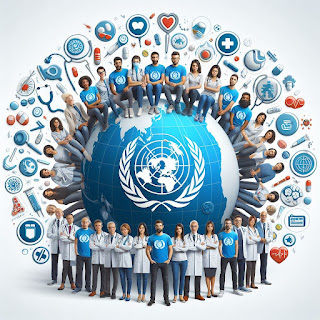 |
| Image created by Dr. Michael J. Miller |
The World Health Organization and the Medicines Patent Pool on Wednesday announced a license agreement with SD Biosensor for the firm's rapid diagnostic testing technology.
Under the nonexclusive agreement, sublicensees will receive "the right, know-how, and material to manufacture" the rapid technology, the WHO said in a statement. The deal was negotiated under the COVID-19 Technology Access Pool (C-TAP) but includes a broad range of diseases beyond COVID-19, such as HIV, malaria, and syphilis, the organization said.
The technology is the basis of South Korea-based SD Biosensor's COVID-19 antigen test, a rapid chromatographic immunoassay for qualitative detection of proteins.
According to the WHO, the technology offered is ideal for low- and middle-income countries (LMICs) because it has no equipment requirements and is easy to use with high sensitivity. In addition, "the comprehensive know-how and support planned for sublicensed manufacturers under a phased technology transfer plan is designed to develop manufacturing capabilities of LMIC manufacturers so they may achieve quality production at competitive prices," the WHO said.
"The license serves as a model for how the C-TAP mechanism can move beyond COVID-19 to also address other public health needs," Yukiko Nakatani, assistant director-general for access to medicines and health products at the WHO, said in a statement. "This license reinforces WHO's commitment to technology transfer and to promoting the need for greater local manufacturing that will benefit all patients, everywhere."
C-TAP was launched in 2020 in an attempt to encourage developers of COVID-19 vaccines, therapeutics, diagnostics, and other products to voluntarily share intellectual property, knowledge, and data to accelerate innovation and expand global production capacity. The new model, the Health Technology Access Pool, will incorporate structural, process, and other improvements to expand the scope beyond COVID-19 and promote access to priority health technologies, the WHO said.
MPP is a public health organization, backed by the United Nations, seeking to increase access to and aid in the development of primarily medicines for low- and middle-income countries.
